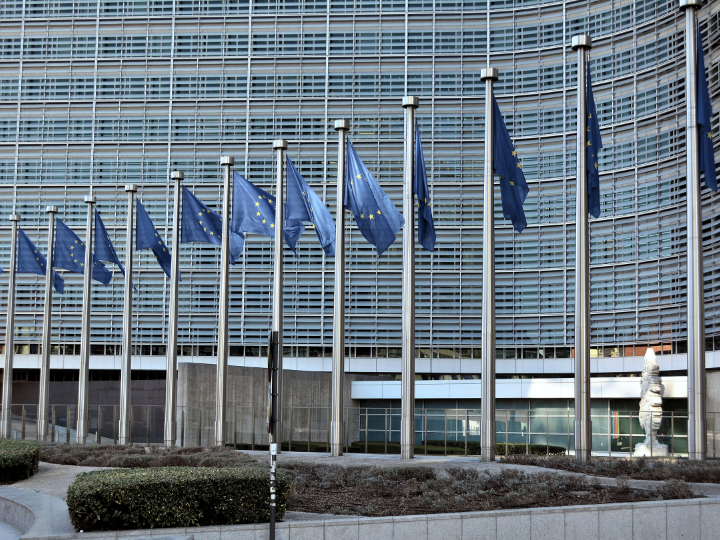by Magnus Lund Nielsen
As the deadline for EU countries to submit their commissioner picks draws closer, Commission President Ursula von der Leyen appears to have dropped her vision of a gender-balanced Commission, with analysts attributing it to domestic politics and tactical manoeuvring taking precedence over the common European good.
Of the 27 member states, 22 have so far put forward their choice of Commissioner-designates, but with just five days to go before the official deadline, Portugal, Belgium, Denmark, Italy, and Bulgaria are the five member states that have yet to announce their choice.
Of the 22 candidates already proposed, 16 are men, and six are women, with familiar faces France’s Thierry Breton, Latvia’s Valdis Dombrovskis, the Netherlands’ Wopke Hoekstra and Hungary’s Oliver Varhelyi (all men) having been asked by their respective governments to serve another five-year term.
That’s a far cry from von der Leyen’s call for a gender-balanced team of commissioners for her second term in office.
Asked by reporters on Thursday (23 August) whether the new Commission was confident it would get an equal number of male and female candidates, the Commission’s chief spokesperson, Eric Mamer, replied: “We are not going to give a blow-by-blow account of the process that is currently underway”.
When von der Leyen made the same plea to member states when designing her first team of commissioners in 2019, eleven countries proposed a female commissioner. Once assembled, the group almost achieved gender parity.
But today’s situation “reflects a new Europe in which national interest becomes more important than the European interest”, Alberto Alemanno, professor of EU law at HEC Paris, told Euractiv in an interview.
Although the Commissioner is not supposed to represent the country’s interests, his or her appointment is based on political considerations, such as party affiliation.
It will be up to the European Parliament to take gender parity into account when hearing, approving and rejecting Commissioners-designate this autumn, as stipulated in the Parliament’s Rules of Procedure.
The holdouts
As for those still yet to nominate a commissioner, they might have decided to withhold the name of their commissioner-designate for tactical reasons, according to Mads Jedzini, EU analyst at the Copenhagen-based think tank Europa.
Waiting to see how the pool of nominees evolves could play into the hands of the countries’ holding out, he added.
“What kind of candidates has [von der Leyen] already received, and where could [the EU country] possibly position itself to be considered for something it wants?” Jedzini asked.
Italy, for example, has been vocal about its interest in an economic portfolio and has been waiting to see which names other countries put forward to position themselves best.
Domestic politics may be another factor in member states’ wait-and-see approach.
In Denmark, Mette Frederiksen’s government is expected to combine the appointment of an EU commissioner with a cabinet reshuffle and create an EU ministerial post ahead of the country’s EU presidency stint in the second half of 2025, Jedzini explained.
Bulgaria, for its part, is in the midst of an unprecedented political crisis that has left the country without a government and, therefore, without anyone to appoint a new commissioner.
Belgium is in a similar situation, with government talks having recently broken down.
Tug of war between member states and Commission
However, the two experts disagreed on how much leverage the Commission president has to get member states to nominate the best possible candidates.
According to Jedzini, von der Leyen’s “best shot is trying to tailor some of the Commission portfolios to accommodate member states.”
He also pointed to von der Leyen’s proposal for a housing commissioner, something Southern European countries have been calling for.
But according to Alemmano, von der Leyen “has almost unlimited leverage.” He believes that if von der Leyen is serious about her prerogative, she will have to ask member states to reconsider.
“The situation has become so chronic that, in my view, the current nomination process will have to be reset,” the expert commentator stated.
Once von der Leyen has the full list of nominees, as Alemanno suggests, she can ask member states to propose new names before submitting them to Parliament for scrutiny.
To get her proposed team through the vetting process, von der Leyen will have to consider the political makeup of the new European Parliament, Jedzini added.
If von der Leyen decides not to reshuffle the current list of candidates, it is expected that the hearings of the commissioners-designate will take place in the European Parliament at the end of September.
*first published in: Euractiv.com




 By: N. Peter Kramer
By: N. Peter Kramer

